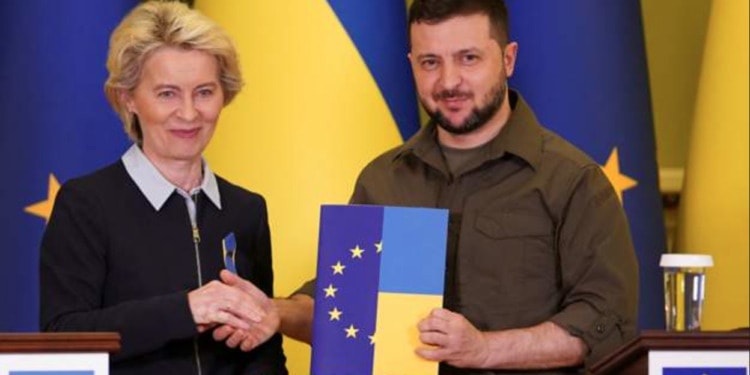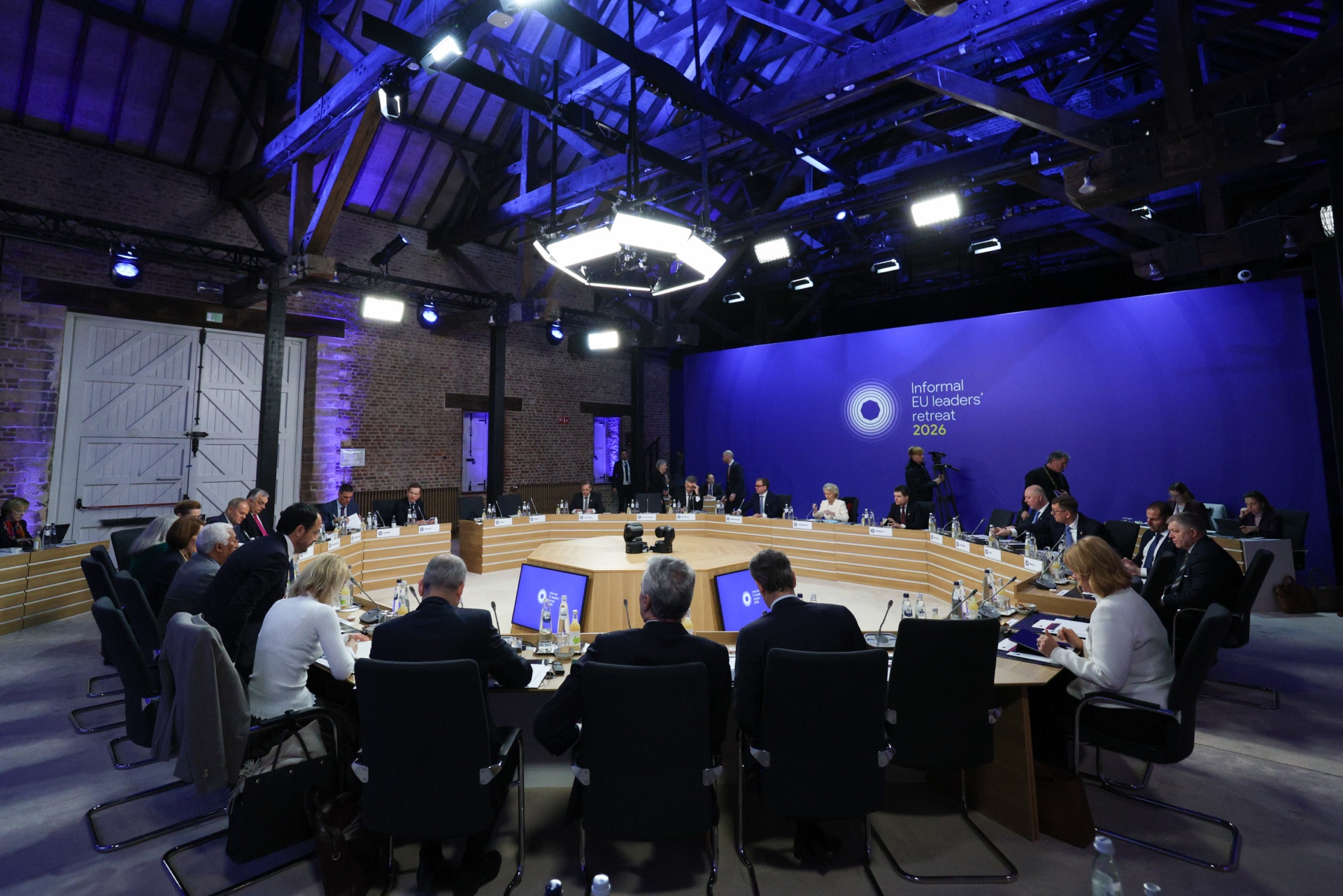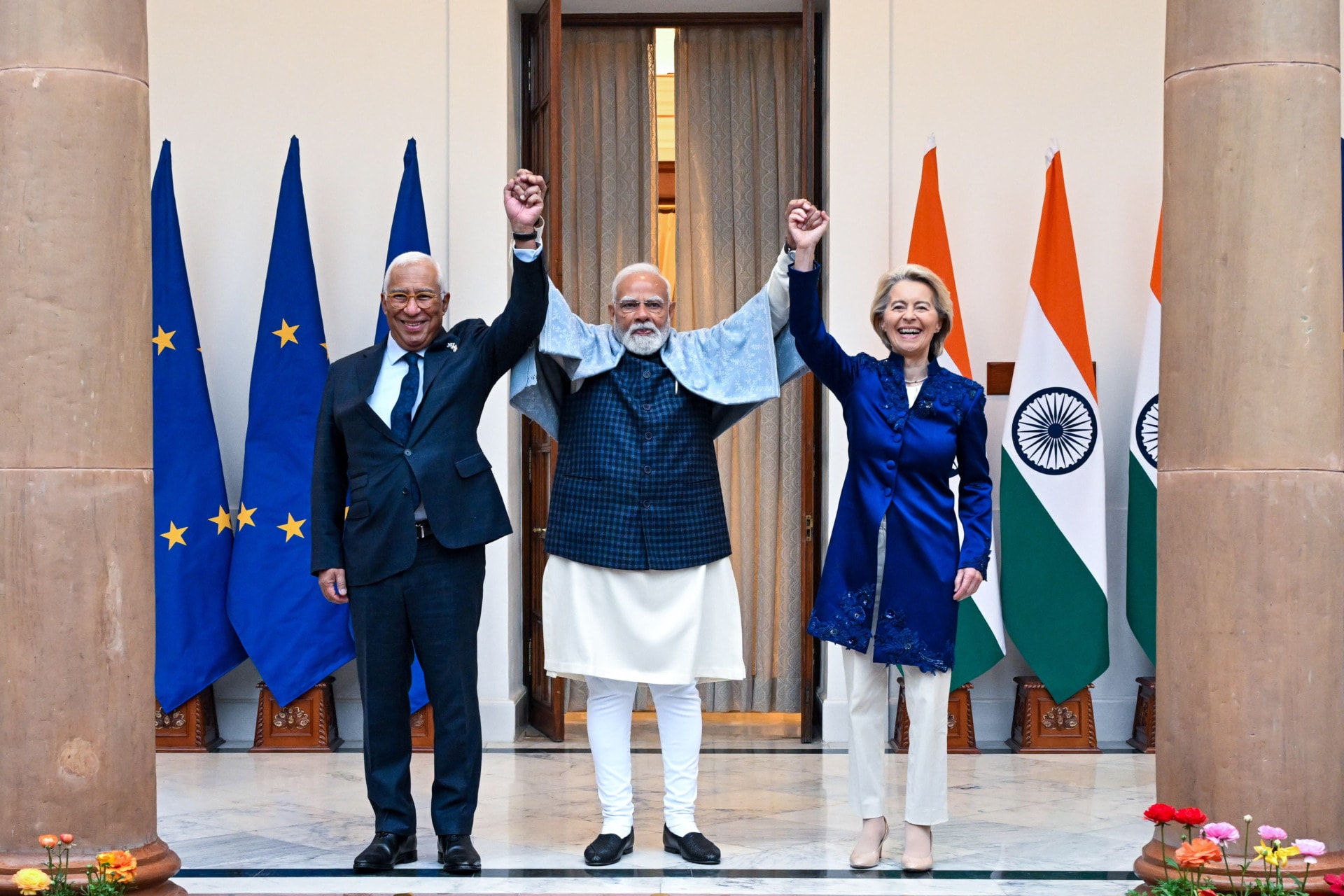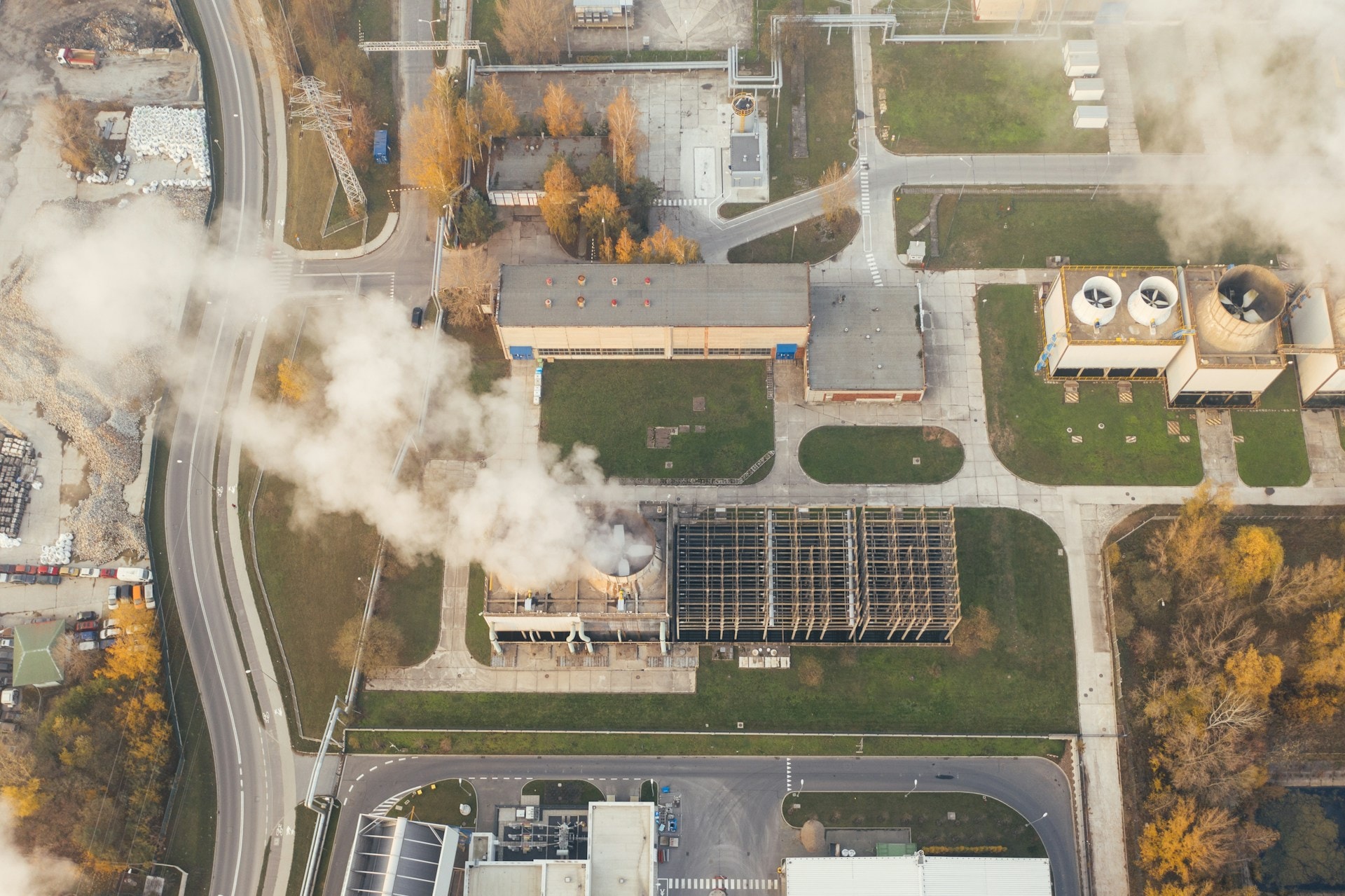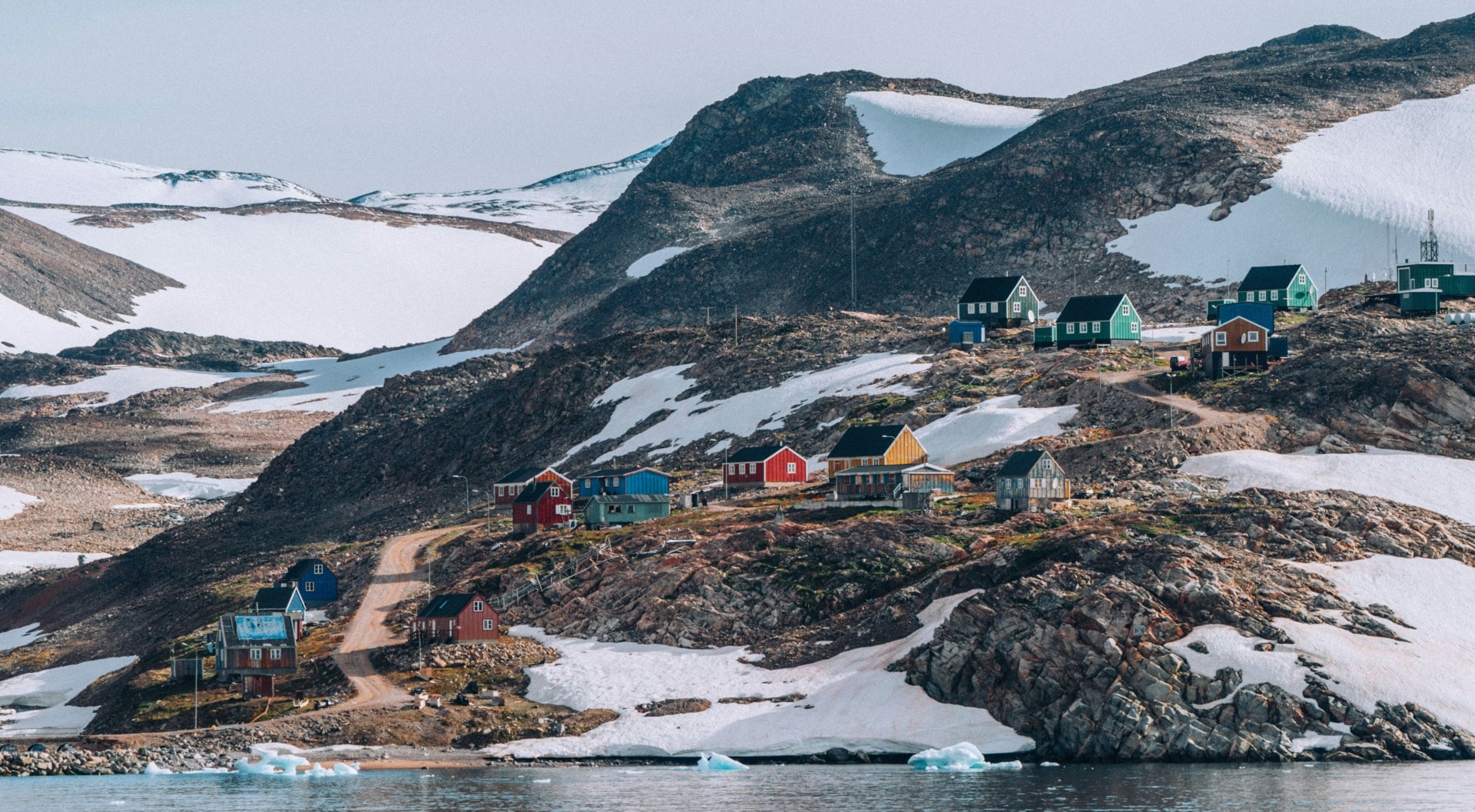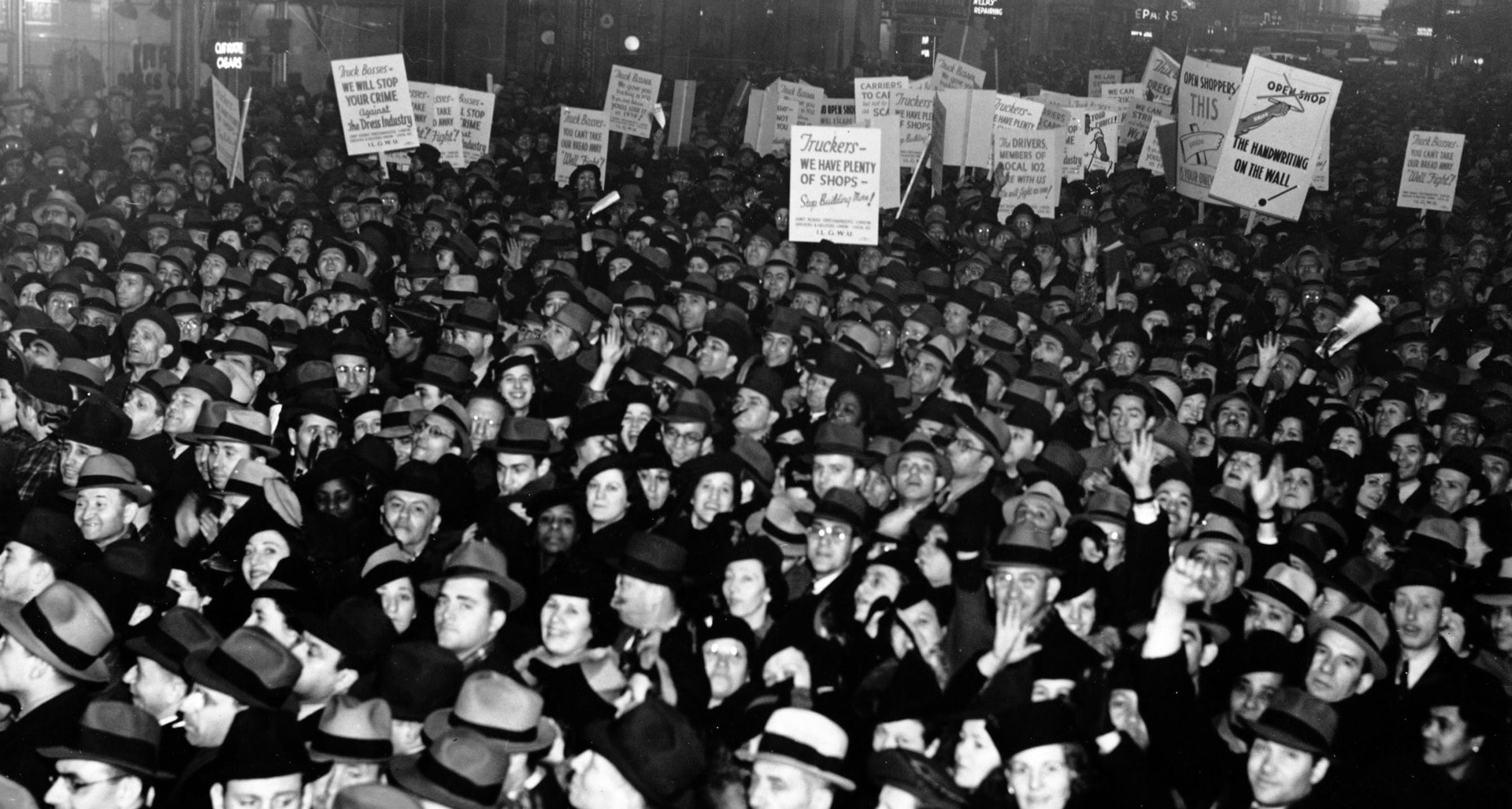On Thursday, June 23, European Union leaders formally accepted Ukraine and Moldova as candidates to join the 27-nation bloc at the Council of the EU summit.
The move has been hailed by Ukrainian President Volodymyr Zelensky as a “historic moment,” confirming that “Ukraine’s future is in the EU.” But it’s not just a matter of “Ukraine’s future”, it is also giving Zelensky an immediate advantage: A hand to play in any future peace negotiation with Russia now that the door to NATO has been firmly shut.
Today is a good day for Europe!
Ukraine 🇺🇦 and Moldova 🇲🇩 are granted the candidate status to become part of the European family.
Georgia 🇬🇪 is given the perspective to become a member of the EU.#EUCO pic.twitter.com/alLwvSIZG4
— European Commission (@EU_Commission) June 23, 2022
Thursday’s summit: support, concern, contentions, and a final result by evening
EU heads of state and government gathered yesterday in Brussels for the first day of a two-day summit, where Ukraine’s bid for EU candidacy was top of the agenda.
Ukraine’s successful result didn’t come as a huge surprise, as Germany, France and Italy’s leaders publicised their support of the move last week, and the European Commission formally endorsed candidate status for Ukraine and Moldova last Friday, with certain added recommendations.
On Thursday morning, the European Parliament adopted a resolution calling on leaders to grant EU candidate status to Ukraine and Moldova without delay, which was approved by a large majority.
BREAKING: European Parliament approves massively the candidate status of Ukraine and Moldova as member of the European Union ! pic.twitter.com/0IxA1g14Wr
— Guy Verhofstadt (@guyverhofstadt) June 23, 2022
Georgia was instead advised to deliver on the priorities by implementing certain reforms indicated by the European Commission before receiving candidate status.
Many leaders showed their support for Ukraine’s accession
In a speech to the European Parliament on Wednesday, European Commission President Ursula von der Leyen stressed that the move will deliver a morale boost to the country
“It is the only country where people got shot because they wrapped themselves in a European flag […] Ukraine has gone through hell and high water for one simple reason: and that’s their desire to join the European Union” she said.
Irish Prime Minister Micheál Martin said Ukraine’s EU accession would be the best way to aid its post-war reconstruction and democratic growth, telling reporters on the day:
“I cannot comprehend how we could ever refuse accession. We know that membership itself can be transformative, can spur on reforms, can spur on economic development”
However, there were worries too. German Chancellor Olaf Scholz told reporters that although the bloc should admit Ukraine as a candidate, EU enlargement must come with reforms. Such reforms include a switch to qualified majority voting so that individual countries can no longer block decisions through unanimous vote requirements, and a greater focus on safeguarding democracy and the rule of law in future EU reforms.
Belgium’s Prime Minister Alexander De Croo concurred, telling reporters that while it’s an important symbolic signal to give Ukraine candidate status, Ukraine’s membership is still a long way off and needs multiple reforms.
Western Balkan nation leaders left frustrated by Bulgaria deadlock
The accession of Western Balkan countries were also set to be discussed on Thursday.
The EU first gave North Macedonia candidate status in 2005, and Albania in 2014, but membership negotiation talks have been long stalled by the dispute between EU member Bulgaria and North Macedonia.
In the meeting, EU leaders failed to overcome Bulgaria’s objection to North Macedonia joining the bloc, halting the Balkan region’s EU aspirations once more, which unsurprisingly caused much anger.
Addressing reporters after the meeting, North Macedonian Prime Minister Dimitar Kovačevski said the failure of the summit to reach a compromise between Bulgaria and North Macedonia is “a serious problem and a serious blow to the credibility of the European Union”. Albanian Prime Minister Edi Rama also warned “it’s a good thing to give candidate status but I hope the Ukrainian people will not [have] many illusions”, referencing the length of time Albania and North Macedonia have waited for membership.
The short time it took Ukraine to reach formal candidate status and Balkan nations feeling sidelined as a result could allow for Russia and China to extend their influence in the region as a result.
However, despite the apparent continuation of the deadlock, Dutch Prime Minister Mark Rutte seemed hopeful that a breakthrough could happen soon, claiming “I think that you might see a 50, 60 percent chance of a breakthrough next week”.
Essentially, these contentions reflect that the summit raised an important debate regarding the revitalisation of the EU accession process. This has been partially brought on by the Russia-Ukraine leaving Baltic leaders calling for greater defence capacity in the region.
Perhaps one of the most interesting (and least noted) aspect of this summit is the door opened to Georgia that had been sidelined since the five day conflict with Russia in 2008 caused by the Russian-backed self-proclaimed republics of South Ossetia and Abkhazia. It had been left waiting for a long time without much hope, until Russia’s aggression on Ukraine put again a spotlight on Georgia’s difficult position.
What does candidate status actually mean for Ukraine?
“Ukraine will prevail. Europe will prevail. Today marks the beginning of a long journey that we will walk together,
EU foreign policy chief Josep Borrell said of Ukraine’s new status
In the fifth month of the brutal Russia-Ukraine war, this move could be intended to deliver a boost of morale to Ukraine. And it can surely be viewed as some sort of shield – and this is perhaps its most important aspect – as it strengthens Zelensky’s hand in any future peace negotiation with Russia. He has already indicated at the start of the war (perhaps hoping that this would slow down Putin) that Ukraine had given up on any future NATO membership; the EU candidacy therefor comes as a welcome replacement – and again, could function as a possible future shield just as NATO membership would have.
The decision is also symbolic of the EU’s intention to gain greater influence in the former Soviet Union. As Russian President Vladimir Putin says, his invasion of Ukraine in late February partly resulted from Western encroachment into what Russia sees as its rightful sphere of influence; the EU’s support for Ukraine is a signal to Moscow of continued resilience against Putin and his rule.
The prospect of membership for countries striving to become EU member states is also seen by some EU diplomats to be in the Union’s own political, economic and security interests.
This decision strengthens us all.
It strengthens Ukraine, Moldova and Georgia, in the face of Russian imperialism.
And it strengthens the EU.
Because it shows once again to the world that we are united and strong in the face of external threats.— Ursula von der Leyen (@vonderleyen) June 23, 2022
But it could be years before Ukraine and Moldova qualify, and EU enlargement causes some concern
Ukraine and Moldova join Albania, North Macedonia, Montenegro, Serbia and Turkey as membership candidates. Georgia was instead advised that it would need to implement certain reforms indicated by the European Commission before receiving candidate status.
The Ukraine war is likely to have significantly accelerated Ukraine’s candidacy endorsement, but the Commission made it clear that its accession will still be based on existing merit-based procedures, without any preferential treatment. Ukraine and Moldova’s candidacy also don’t guarantee their acceptance into the EU, as the decision remains reliant on the unanimous approval of member state governments.
Accession negotiations will also not be instantaneous, as EU leaders stressed that the bloc needs an overhaul of its decision-making process before it can enlarge again, which could delay accession negotiations.
Concerns were also channelled by nationalist politicians warning against an ‘expansion’ of EU power, including members of Belgium’s Vlaams Belang and Hungary’s Fidesz party lead by Orban, who signed a declaration stating that they feared the current crisis would “be abused by the European Union for the expansion of its power’.
However, leaders from Germany and Italy (amongst others) argued that EU enlargement encourages would-be members in the EU’s neighbourhood to become more democratic, aiding opposition to the rival powers such as Russia
Overall, attaining candidate status is a major first step for countries aspiring to be part of the EU.
It is the first seal of approval. Negotiations then follow, finding whether a country has all the correct laws and standards in different policy areas, known as the acquis, before being signed off again by all EU governments
These negotiations have been over in as little as roughly three years in Finland and Sweden’s case, but as in the example of North Macedonia and Albania they can take a lot longer. For example, Croatia started its acquis negotiations in 2005 and became a full member only in 2011.
Some countries becoming increasingly sceptical about enlargement and the fact that Ukraine is still experiencing a full scale war means it is somewhat unrealistic that the negotiations will commence very soon. However, Ukraine has been working hard to take steps towards the acquis ever since signing a free trade agreement with Brussels in 2014.
Just as it is impossible to know when the Russia-Ukraine war will end, it is difficult to know how long it could take Ukraine and Moldova to become EU members. Meanwhile, the second day of the summit is set to target the current inflation and energy crisis, two equally pressing issues for all EU citizens.
Editor’s Note: The opinions expressed here by Impakter.com columnists are their own, not those of Impakter.com. — In the Featured Photo: Ukrainian President Volodymyr Zelensky meets with European Commission Chief Ursula von der Leyen to discuss possible EU candidate status in April 2022. Two months later, candidate status has been granted. Featured Photo Credit: Flickr.


